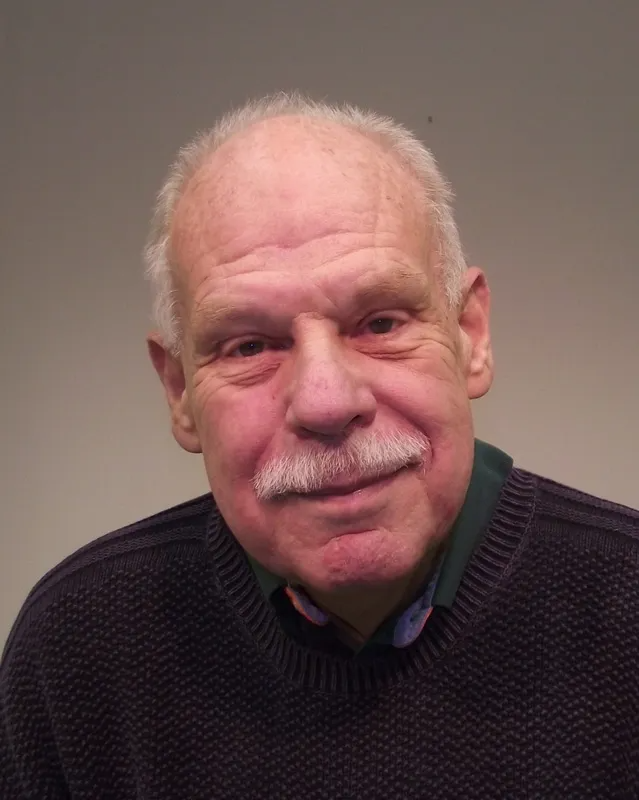Dan Van Ommen: It begins with humility
Humility, it seems, is not highly regarded in American society. Schools may have programs for building self-esteem, but not humility. We are taught to take pride in our work; to be self-reliant. Humility is something we often joke about, like the imaginary book, "Humility And How I Attained It." Many of us can remember the words from the 1980 hit song by Mac Davis; "O Lord it's hard to be humble, when you're perfect in every way. I can't wait to look in the mirror. I get better looking each day. "
Charlene Ann Baumbich wrote a book about raising her sons. One chapter was about humbling experiences she had. She then felt the urge to study humility. After hours of research and study, to read what other people had learned about humility,she went to Christian bookstores and asked for books on humility. Time and again clerks said, "Gee, there don't seem to be many books on that specific topic. After all, who would dare write on it?"

There was a moment in the early years of King Solomon's reign when he realized what could happen to God's followers when they "humble themselves and pray."
Solomon was not only wealthy and wise, he was also passionate about God's followers encountering God's presence in a way that would transform their minds and hearts. This longing of Solomon's heart led him to do the hard work of preparing a place for God's people to have a life-changing encounter with the living Lord.
In 2 Chronicles 6:14, he prayed, and in Solomon's prayer, we catch a glimpse of how Solomon believed his hard work of building the temple would ultimately open the door for God to do the transformative work of changing the peoples' hearts. God's response was beautifully instructive:
"If my people, who are called by my name, will humble themselves and pray and seek my face and turn from their wicked ways, then I will hear from heaven and will forgive their sin and heal their land."
In the New Testament book of Luke, chapter 18, verses 9-14, Jesus told a story to some folk who felt righteous and proud, and in the process despised others: "Two men went up to the temple to pray, one a Pharisee and the other a tax collector. The Pharisee stood and prayed thus with himself, 'God, I thank you that I am not like other men ... extortioners, unjust, adulterers, or even as this tax collector. I fast twice a week; I give tithes of all that I possess.' And the tax collector, standing afar off, would not so much as raise his eyes to heaven, but beat his breast saying, 'God, be merciful to me a sinner!' I tell you, this man went down to his house justified, rather than the other; for everyone who exalts himself will be humbled, and he who humbles himself will be exalted."
I believe it is important to note that the tax collector himself was not spiteful of the self-righteous attitude of the Pharisse; he was more concerned with his own relationship with God. He truly was humbling himself.
Another example of humility and prayer can be found in Matthew 6:5 and 6, where Jesus says: "And now about prayer, when you pray, don't be like the hypocrites who pretend piety by praying publicly on street corners and in church where everyone can see them. Truly, that is all the reward they will get. But when you pray, go away by yourself, all alone and shut the door and pray to your Father secretly, and your Father, who knows your heart, will award you."
Leonard Bernstein, one of the finest musical conductors, born and educated in the United States, who died in 1990, was once asked which musical instrument was the most difficult to play. He said, "The second fiddle. I can get plenty of first violinists, but to find someone who can play second fiddle with enthusiasm ... that's a problem."
First violinists are the stars. They have the "fun" part. Second violinists harmonize with the firsts. Their score, played by itself, may not make much sense. Their job is to support the first violinists. Second violinists are concerned with the success of the orchestra without calling attention to themselves.
We often hear prayers spoken to "heal our land"; we desperately need that healing. The Lord told Solomon to tell the people to, "humble themselves."
While two men went into the church to pray, one was justified; the other was not. We should be careful to ensure that our personal act of prayer and worship is acceptable to our creator, remembering we don't need a performance.
— Dan Van Ommen is a Zeeland resident and a member of the Reformed Church in America. Contact him at dan.vanommen@gmail.com.
This article originally appeared on The Holland Sentinel: Dan Van Ommen: It begins with humility
